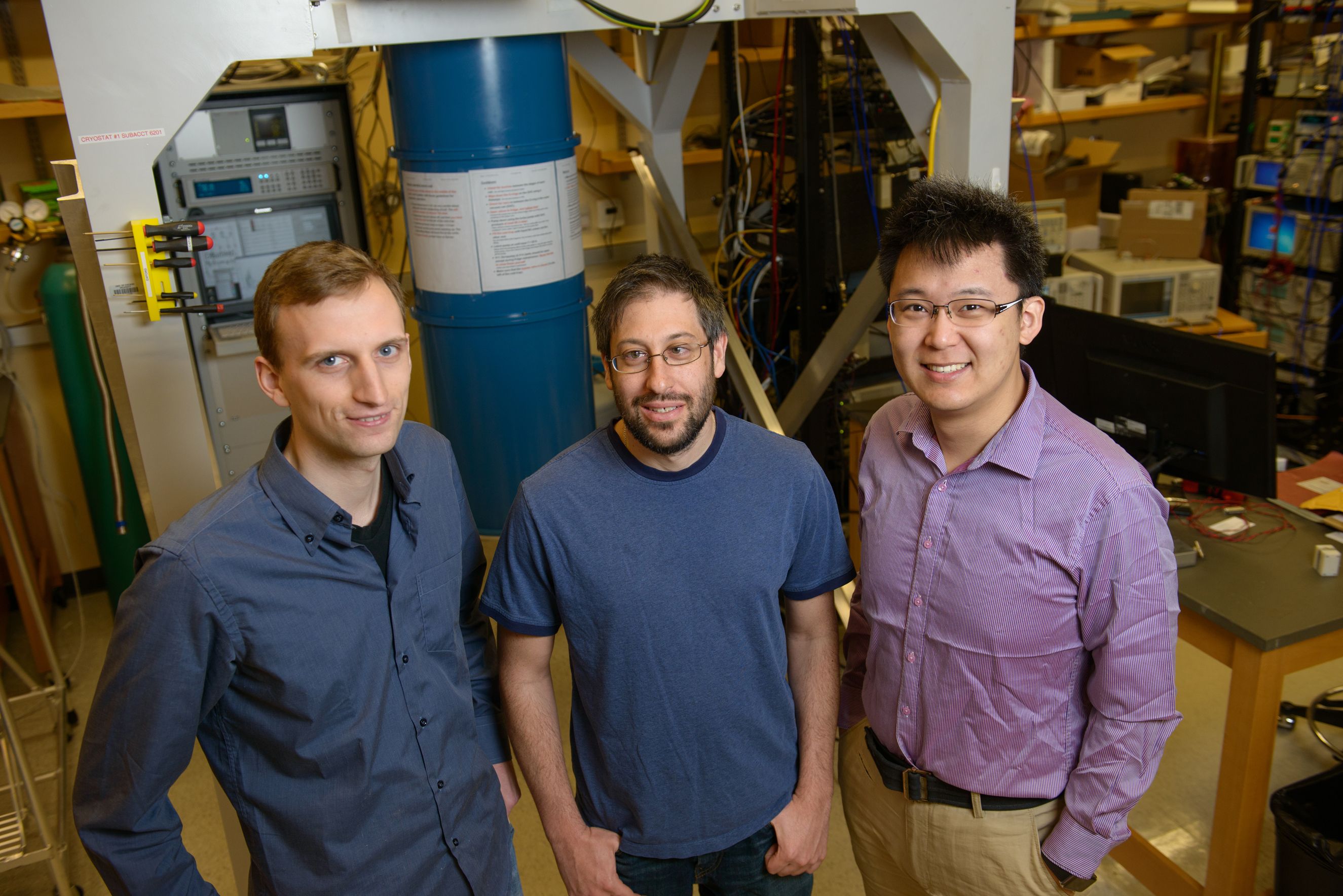Finally, some well deserved recogonition to Argonne Natl. Labs in their efforts on QC with the Univ. Of Chicago.
If biochemists had access to a quantum computer, they could perfectly simulate the properties of new molecules to develop novel drugs in ways that would take the fastest existing computers decades.
Electrons represent an ideal quantum bit, with a “spin” that when pointing up can represent a 0 and down can represent a 1. Such bits are small—even smaller than an atom—and because they do not interact strongly, they can remain quantum for long periods. However, exploiting electrons as qubits also poses a challenge because they must be trapped and manipulated. Which is exactly what David Schuster, assistant professor of physics, and his collaborators at UChicago, Argonne National Laboratory and Yale University have done.
“A key aspect of this experiment is that we have integrated trapped electrons with more well-developed superconducting quantum circuits,” said graduate student Ge Yang, lead author of the Physical Review X paper that reported the group’s findings. The team captured the electrons by coaxing them to float above the surface of liquid helium at extremely low temperatures.
